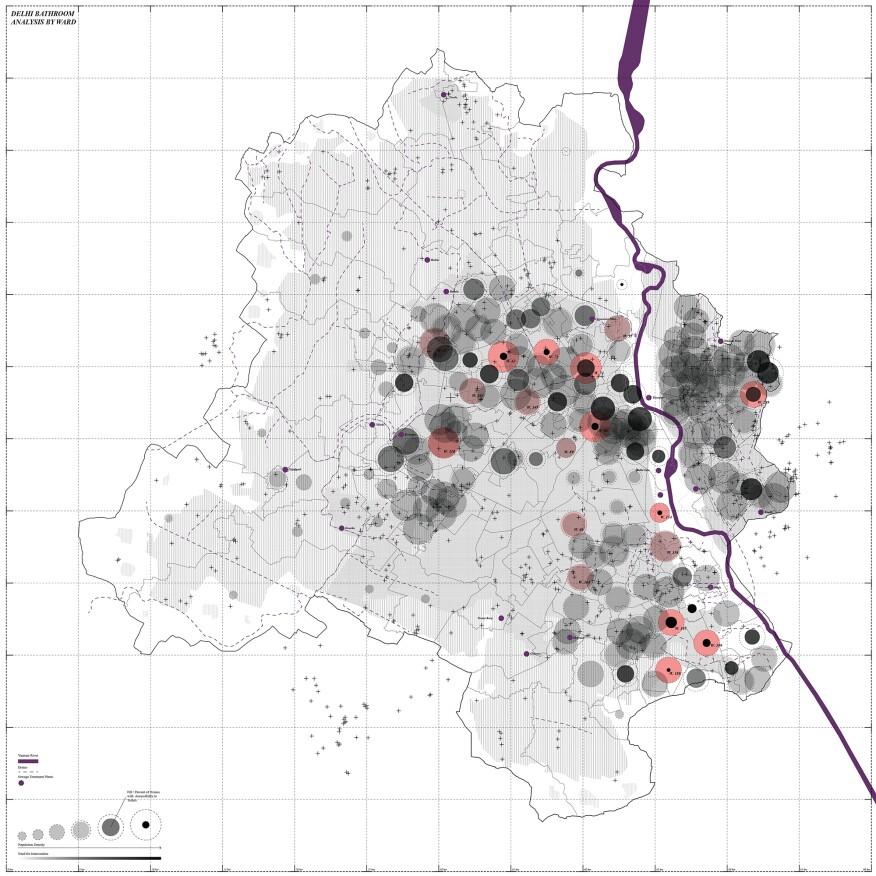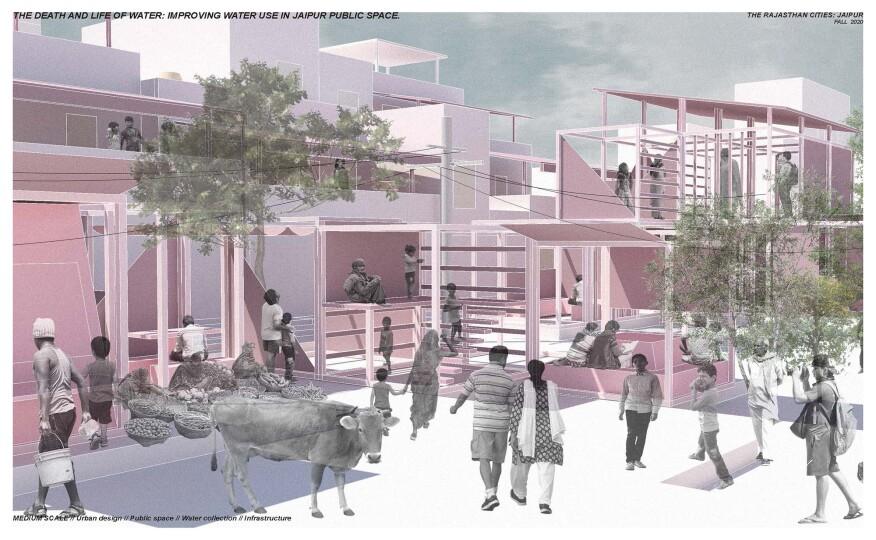YAMUNA RIVER PROJECT
ABOUT THE YAMUNA RIVER PROJECT —
The Yamuna River Project (YRP) aims to be a catalyst for the urgent recovery of the Yamuna River in India and its tributaries, building a publicly accessible body of information and expertise, and visions of what an alternative future could be. The YRP was founded at the University of Virginia School of Architecture in 2014 and expanded to Tulane University in 2019. The YRP is dependent on the continued research of faculty members at the University of Virginia and elsewhere. Professors, students, and directors from Architecture, Art History, Leadership, Business, Engineering, Science, Politics and Health lead to comprehensive and coordinated research efforts regarding the Yamuna, Delhi, and Jaipur extended. The YRP has facilitated nearly a dozen research trips to India, especially in coordination with advanced research design studios. Projects from these studios have received countless national awards and the YRP studio pedagogy has twice been nationally recognized as one of a handful highlighted as a model for “thoughtful and ethical” studio teaching.
DIRECTORS —
Pankaj Vir Gupta, Professor, Architecture, UVA [pvg2x@virginia.edu]
Iñaki Alday, Dean and Koch Professor, Architecture, Tulane [ialday@tulane.edu]
Brian Owensby, Director, Center for Global Inquiry and Innovation and Professor, History, UVA [bpo@virginia.edu]
STUDIO FACULTY —
María González Aranguren, Assistant Professor, Architecture, UVA [mg5hh@virginia.edu]
YRP SELECT RECENT STUDIOS —

RE-CENTERING NEW DELHI, A PIECE OF THE CITY
In its seventh year, the Re-Centering New Delhi studio at UVA School of Architecture involved 13 students, focused on a 24-kilometer stretch of the Yamuna River, which bisects the city and provides both its drinking water and its sewage drain. The students divided into teams to research different aspects of the river, including its uses, its impact on health, and the housing stock surrounding it.
After several weeks of research, the students traveled to New Delhi, where they met with local political and community leaders. Following the visit, each student chose a particular aspect of the research to develop into a project proposal—for example, one designed a plan to better handle sewage from nearby housing blocks, while another developed a scheme to reintroduce small-scale agriculture to the Yamuna flood plain. Finally, the class combined their projects into a master plan for the river—which is integrated with the previous semesters’ work.
Winner of the 2019 Studio Prize
Instructors: María González Aranguren (Assistant Professor, Architecture); Pankaj Vir Gupta (Professor, Architecture)
Students: Darcy Engle, Katherine Rush, Jing Huang, Hangyu Shi, Christian Kochuba, Cong Nie, Gene Louise Kimberly Corral, Jonathan Chu, Yousef Almana, Yasmin Ben Ltaifa, Andrew Helmbrecht, Kristen Von Bampus, Mennen Middlebrooks (work submitted)

THE RAJASTHAN CITIES: JAIPUR
Looking at the specific needs of Jaipur, India, this Fall 2019 advanced research studio explored urban and architectural strategies to address the need to harvest water during the few months of monsoon rain, while also striving to create a more equitable city in terms of natural resource allocation and access to egalitarian public amenities.
This semester-long research studio brought two research professors together with 14 students across architecture, urban planning, and landscape architecture. Following six weeks of initial research, the studio (along with a group from Tulane University investigating a similar program) spent a week in New Delhi and Jaipur. The preliminary research was presented to local officials while the class was in Jaipur.
Students designed their own strategic interventions, informed by their field research and observations. “These students are attentive to the people who remain unrepresented, who never have a voice in requesting architectural help,” Gupta says. This ethic was reinforced by the instructors, who helped them to develop meaningful prototypical solutions that are tailored to the pressing need for obtaining, maintaining, and regulating clean water by Jaipur’s inhabitants.
Winner of the 2020 Studio Prize
Instructors: María González Aranguren (Assistant Professor, Architecture); Pankaj Vir Gupta (Professor, Architecture); Darcy Engle (Yamuna River Project Fellow)
Students: Mary Kate Graeff, Chenjie Xiong, Qinmeng Yu, Allison Ta (submitted work); Gaelle Gourmelon, Nicholas Wittkofski, Huiru Shen, Chloe Nagraj, Wenyan Yu, Audrey Liu, Karim El-Araby, Grace Douthit, Emmett Debree
Learn more about this project.
SUPPORTED COURSES —
The Yamuna River Project supports courses connecting curriculum and research. These courses include:
Advanced Research Studios (graduate and undergraduate) at the University of Virginia and Tulane University as well as research across water economics, environmental sciences, art history and more.
RESEARCH AFFILIATIONS + COLLABORATORS —
YRP affiliated research partners and collaborators include resident and institutional stakeholder groups who work with YRP to develop research as a catalyst for the urgent recovery of the Yamuna and its tributaries, building a publicly accessible body of information and expertise, and visions of what an alternative future could be:
UVA Center for Global Inquiry and Innovation
UVA Institute of the Humanities and Global Cultures
Embassy of Spain in India
Embassy of Switzerland in India
Delhi Jal Board
Aga Khan Trust for Culture
Katz Family Foundation
Yamuna Biodiversity Park
YES Institute
